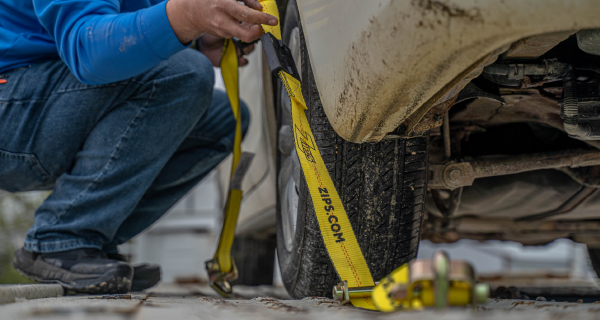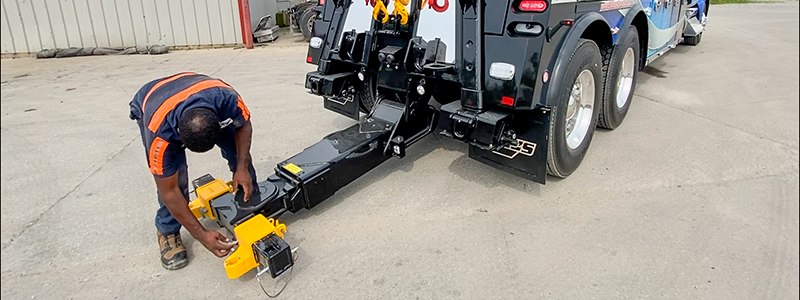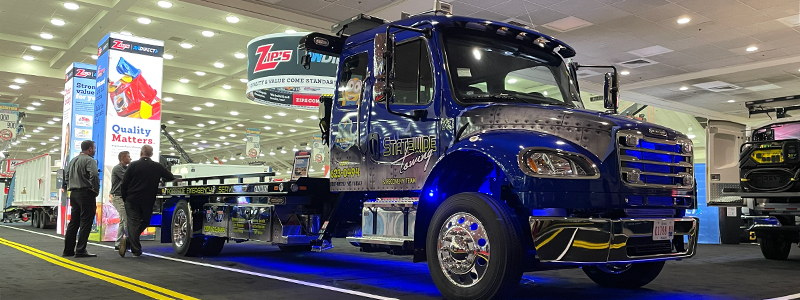Guide to Ratchet Strap Selection

How to Select a Ratchet Strap
A ratchet strap is an adjustable strap used to secure freight, vehicles, materials and equipment for transport. Each assembly includes a short strap attached to a ratchet and a long strap to reach over the load. Both sections include an end hook fitting to secure the cargo to the other side of the truck or trailer.
Made from polyester webbing, the straps are available in varying widths. Professional truck drivers typically use 3”W and 4”W straps to secure their freight on flatbeds or inside van trailers, while tow operators commonly use 2”W straps on their car carriers and wheel lifts. Weekend warriors often use 1”W straps to tie down off-road recreational vehicles.

The size of the strap dictates the amount of weight it can secure, otherwise known as the Working Load Limit (WLL). Each strap should have its stated capacity stitched into the webbing or affixed to an identification label. For obvious safety considerations, the WLL should be never be exceeded. Here are some common per/strap capacities:
2″W = 3,300 lbs.
4″W = 5,000 lbs.
Like the WLL, hook attachments on ratchet strap assemblies can vary as well, depending on the type of equipment or freight you are hauling and the type of truck or trailer you are using to haul it. Perhaps the most common hook fitting for all straps is the Double J hook. Here are some specific applications for various trailers and decks:
- For flatbeds, a flat hook or Double J hook is a typical attachment to a rail or stake pocket.
- For an open car carrier or car trailer, a chain tail is preferred to fit into a keyhole slot.
- For inside a van or refrigerated trailer, an E-Track fitting works well if so equipped with that style of track.
- For a recreation trailer, a coated, wire, or single J or S hook usually suffices.

In addition to the end hook fitting, the length of strap is another consideration. Truck drivers typically need 20’ of length, while the recreational enthusiasts can usually get by with 12’. The length you need, again, depends on what you’re hauling. Please note the length does not affect the WLL.


%20blog%20thumbnail.png)


%20blog%20thumbnail.png)







